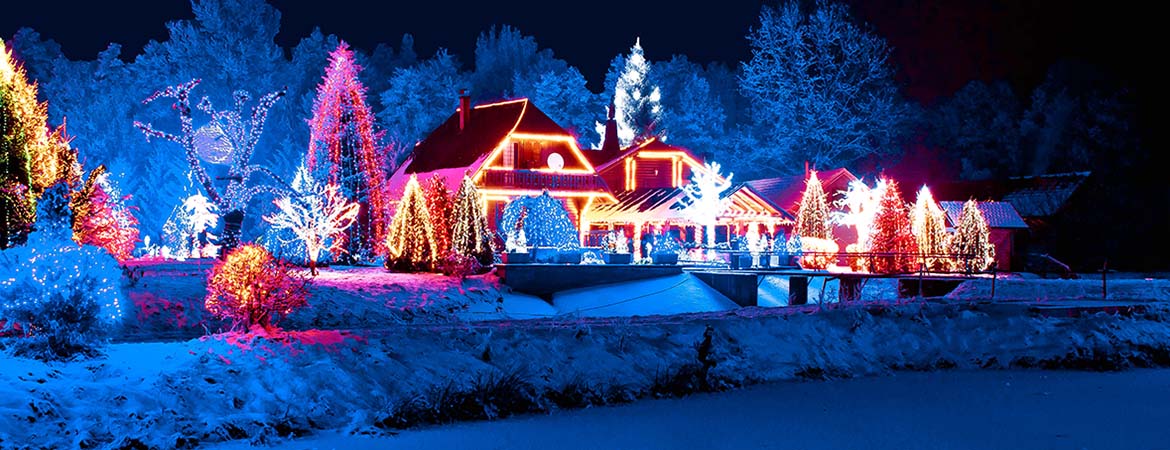Holiday hazards: 5 tips for outdoor decor
During the holiday season, emergency rooms nationwide are flooded with victims of holiday decor gone wrong.

Are you putting lights or other decor on your house for the holidays? More than 86% of Americans decorate their homes as part of their winter holiday celebrations, according to the Electrical Safety Foundation International, or ESFI. For many, the allure of draping a home in bright, twinkling bulbs and adorning the yard with giant blow-up reindeer is irresistible; but when it comes to holiday decorating, stockings aren’t the only things that should be hung with care. Take extra caution when decorating this season so you can continue to do so for years to come.
- Put preparation before pizzazz.
Take proper steps to ensure your home is ready for the holiday glitz. For instance, clean dried leaves out of gutters before hanging that first string of lights. Hot lights resting on dry leaves can create a fire hazard. Check new and old light strings and decor for things like frayed wires, damaged insulation, broken or cracked sockets, and loose connections. Throw out and replace damaged sets.
- Climb with care.
41% of holiday decorating injuries involve falls, according to the Consumer Product Safety Commission (CPSC). Inspect ladders for loose or missing screws, hinges, bolts, or nuts before using. If hanging lights or other electric decor, make sure the ladder is fiberglass or wooden, as metal ladders conduct electricity! Also check the ladder’s height–if you’re tiptoeing from the top rung to reach your roof, you’re in danger! To be safe, your ladder should extend at least three feet past the edge of your roof.
- Be bright about lights.
Across the U.S., holiday lights are to blame for 160 home structure fires each year and $9 million in direct property damage, according to ESFI.
Did you know that incandescent bulbs generate most of their energy in heat? Newer, more modern LED lights are much cooler to the touch. LED lights are made with epoxy lenses, not glass, and are much more durable. Additionally, they last 25 times longer and use at least 75 percent less energy than their incandescent counterparts, according to the U.S. Department of Energy.
To give mother earth and your electricity bill a bigger break, install an outdoor timer to automatically turn your lights on and off. Oh, and if replacing bulbs or fuses, always unplug first!
- Educate yourself on extension cords.
3,300 residential fires in the U.S. are caused by faulty extension cords each year, resulting in 50 deaths and 270 injuries, according the CPSC. When decking the halls for the holidays, there are more important things to worry about than hiding gawky extension cords from view. Never plug cords into one another, make sure that cords are rated for their intended use, and keep them clear of snow and standing water. Your decor’s power needs should match the amperage rating on the extension cord packaging or label.
- Don’t overwhelm outlets.
Avoid overloading electrical outlets with too many decorations or electrical devices, which can spark a fire. Outdoor electric lights and decorations should be plugged into circuits protected by ground fault circuit interrupters (GFCIs). If circuits are not GFCI-protected, portable outdoor GFCIs can be purchased at most local hardware stores.
During the holiday season, emergency rooms nationwide are flooded with victims of holiday decor gone wrong. During the months of November and December, U.S. hospitals treat an average of 230 injuries per day due to decor mishaps. Please be safe so this season can stay a jolly one!
>> At Kentucky Farm Bureau, we’re just as invested in your home as you are. We protect what’s important to you – from farms and fishing boats to minivans and mobile homes. To see a full list of products we insure, click here.
